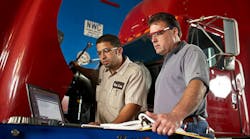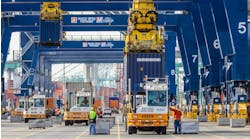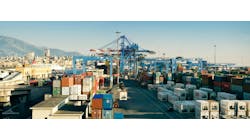Companies Having Trouble Figuring Out Cost Savings of Big Data
A high percentage of and transportation fleet executives and managers are still unaware of the savings achieved by incorporating new fleet technologies, according to a new survey by Fleet Advantage.
The online survey, presented to more than 500 private and transportation fleet executives and managers shows that 45% of respondents are unsure of operational savings resulting from the implementation of new technologies to heavy-duty trucks in their fleet.
“Big Data” has played a significant role in the industry, but clearly many organizations are unsuccessful in trying to assimilate and quantify operational savings from the information.
“Ever since the recession ended, the industry has gone full-speed ahead in adopting newer technologies to their trucks that in turn provide access to a wealth of data and intelligence, especially as it relates to fuel economy,” said Mike Spence, senior vice president of Fleet Services at Fleet Advantage.
“Unfortunately, this survey validates that data has become increasingly voluminous, and many industry professionals do not have the tools to analyze and digest this data that can then be used to make critical decisions for their fleet operations,” Spence added.
Among several vehicle features designed to enhance performance and improve fuel economy, the majority of respondents (68%) said they’ve implemented the utilization of aerodynamic roof fairings.
However, lack of digestible data may also be a reason why roughly a third of respondents said they’ve never used or considered features such as low-rolling resistance tires (34%), aerodynamic mirrors (34%), and aerodynamic cab extenders (34%). Also, 52% of respondents said they’ve never used aerodynamic chassis skirts.
Despite the current low cost of diesel, 81% said they spec their powertrain for fuel economy instead of performance, and 86% spec their axle/gear ratio for fuel economy as well.
“This is a positive sign as fleet executives realize that they cannot just count on diesel prices staying low for continued improvement in fuel economy and savings,” Spence adds. “Today’s cutting-edge technology is designed to save more fuel than ever, but fleet executives must be able to track their fuel performance and quantify the data in order to realize the cost savings.”
In terms of safety features, most industry professionals said they’re interested in tire pressure monitors (24.2%), back-up alarms (21.0%), and roll-over stability (19.4%). Collision avoidance technologies scored the fewest responses at just 9.7%.
The full results from the survey can be found here.



